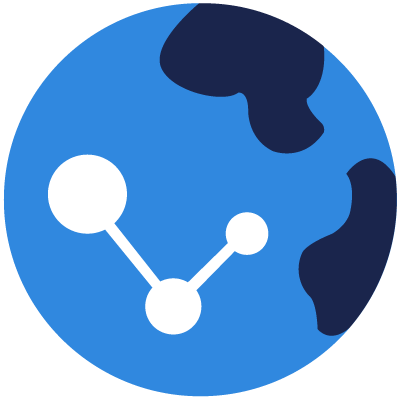
Katherine Hackett, PhD
@KatherineHack15
Followers
417
Following
1K
Media
20
Statuses
245
Neuropsychologist @IcahnMountSinai @NIHAging T32 | intern @nyulangone | F31 fellow @TUcogneuropsych | innovative accessible npsych assessments & interventions
New York, NY
Joined June 2018
Excited to share our official publication @jmirpub @JMIR_HF with proof-of-concept results that #smartphone #digitalphenotyping is feasible with older adults and yields clinically useful information on risk and resilience factors for aging and #ADRD
https://t.co/Z00XEi6FTX
humanfactors.jmir.org
Background: Current methods of monitoring cognition in older adults are insufficient to address the growing burden of Alzheimer disease and related dementias (AD/ADRD). New approaches that are...
1
6
18
This is great @JohnTorousMD !
We know digital literacy is the #1 barrier to digital health. But we cannot improve it if we cannot measure it. Still, what use is a score if it does not lead to action? In response, we created a new tool to match digital literacy needs to lessons/tools: https://t.co/ZEA0qE49Ls
0
0
1
0
0
2
Very grateful to conduct this work within the @MountSinaiADRC with an amazing mentorship team, including Dr. Mary Sano and @FannyElahi at @IcahnMountSinai and Linda Valeri, PhD at @Columbia. Thanks also to @JohnTorousMD and @JustinBakerMD for their support to use #mindLAMP
1
1
4
Our goal is to inform whether passive metrics of everyday behavior via commercially available devices can be used as scalable #digitalbiomarkers of early AD. If successful, this tool may complement existing screeners to expedite treatment and/or clinical trial enrollment.
1
0
0
This grant - "Passive smartphone behavioral phenotypes for Alzheimer's disease screening" - seeks to identify key digital metrics from routine, everyday phone use that may flag early changes in those with elevated clinical (MCI) and biomarker (pTau217) risk of AD
1
0
0
Thrilled to share that I've been awarded an @alzassociation Research Fellowship (AARF) to continue my research on real-world assessment of cognition and behavior in older adults at risk for Alzheimer's disease. #ALZFunded
4
1
15
📣 #WEBINAR: Explore 'From Signals to Solutions: Making Digital Phenotyping Clinically Meaningful.' Join @DrAbbyOrtiz & @JohnTorousMD on August 28 to learn about bridging the gap between algorithm development and practical clinical use. Register: https://t.co/WWJdxktyMK
0
4
3
Well, at least the AI chatbots don't encourage teens to use cocaine! In this paper, a psychiatrist presented cases asking chatbots to validate harmful ideas - and sadly, more than one agreed. Free to read in @JMIR_JMH
https://t.co/OMgThVPdI8
1
9
15
BREAKING: MIT just completed the first brain scan study of ChatGPT users & the results are terrifying. Turns out, AI isn't making us more productive. It's making us cognitively bankrupt. Here's what 4 months of data revealed: (hint: we've been measuring productivity all wrong)
3K
39K
171K
This new review (search up to March 2023) on technology-enhanced practice competencies finds that while there is much work to be done, the vast majority of progress to date has been in the #mentalhealth space: https://t.co/xGILRyJ98z
1
5
15
Special thanks to @JohnTorousMD and his team at the @BethisraelD for developing and maintaining the open source #mindLAMP app used in this study, collaborators @UPennDBEI, and our incredible team @TempleUniv #ITS for their support.
1
0
1
These findings should be considered preliminary given the relatively small (N=37) sample size and limited participant heterogeneity. We believe our use of conceptually driven hypotheses (centered on overall activity level and #IIV) and open source tools increases replicability.
1
0
0
Encouragingly, feasibility was high in our sample - with 100% retention and positive usability/acceptability ratings. We took several steps to ensure participant comprehension and comfort and hope our practical insights can be useful to others doing this work.
1
0
0
We also explored various individual & contextual confounders to passive GPS data - like smartphone type/use habits, season of study participation, occupational status, and demographics. Some were more relevant than others and depend on which digital metric we examined.
1
0
0
Overall findings: those w/ greater activity (who travel farther, spend less time at home, visit more diverse locations) and less routine movements scored better on gold-standard cognitive & functional measures, report less depression, greater life space & community participation
1
0
1
@TaniaGio13 and I investigated whether daily behavior patterns of community-dwelling older adults, captured passively from personal smartphones over 4 wks, associate w/ in-person assessments. Here we focus on mobility habits via smartphone GPS (other sensor analyses forthcoming)
1
0
1
We all know digital literacy is a social determinant of health and a key barrier to uptake/success of digital health efforts. That is why our team has developed and is sharing our smartphone + laptop modules, slides, lessons, handouts, assessments etc: https://t.co/NgCZ1ssDQV
0
16
41
Thank you @NIHAging for an amazing 3 days at the #ButlerWilliams Scholars program last week packed w/ great talks, insider grant writing tips, mock study section, and new connections w/ VERY impressive (and wonderful) interdisciplinary scholars in aging science. 10/10 recommend!
0
0
11



